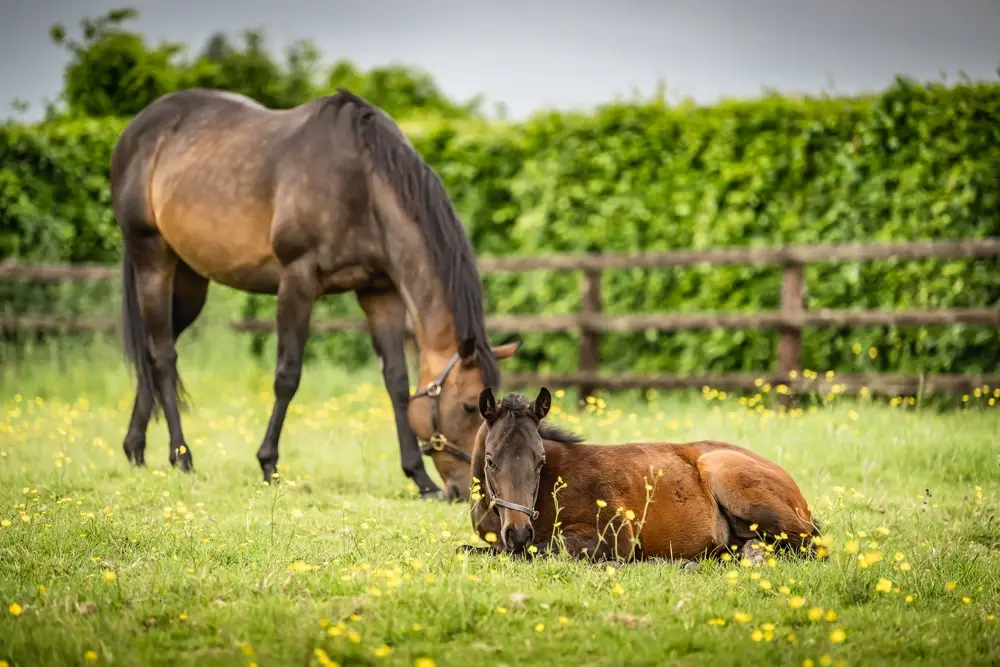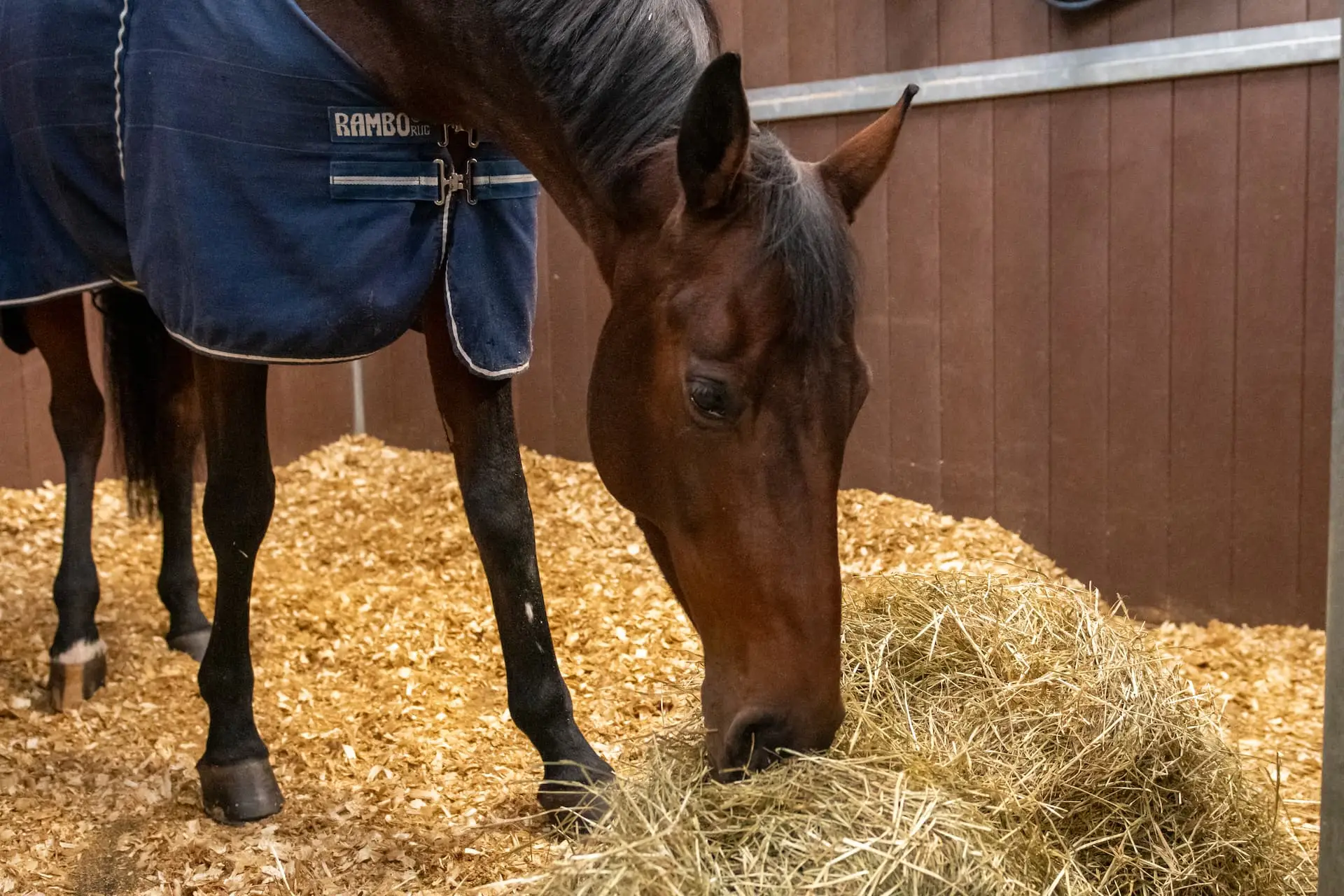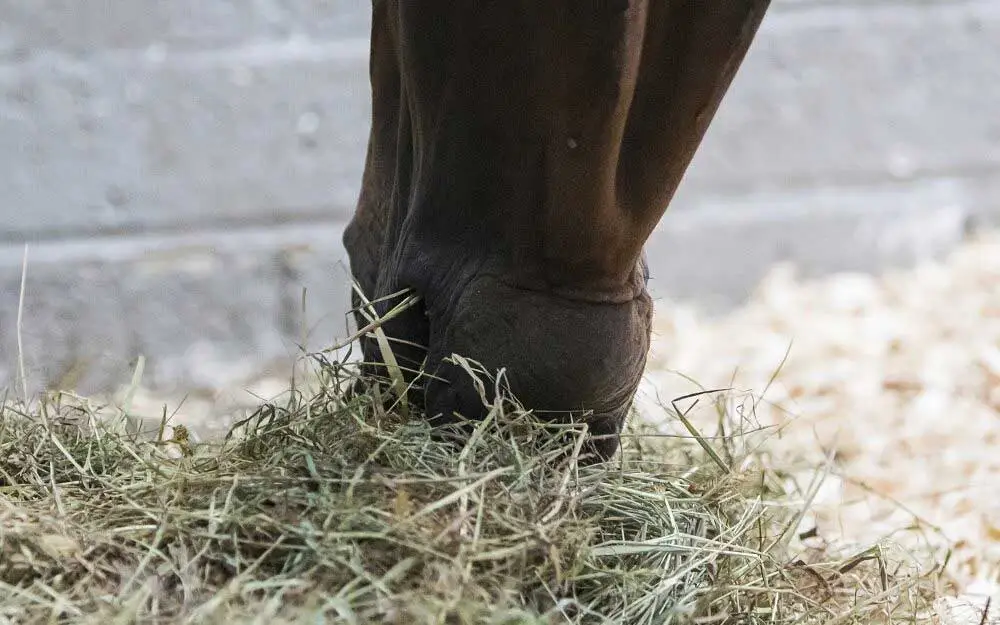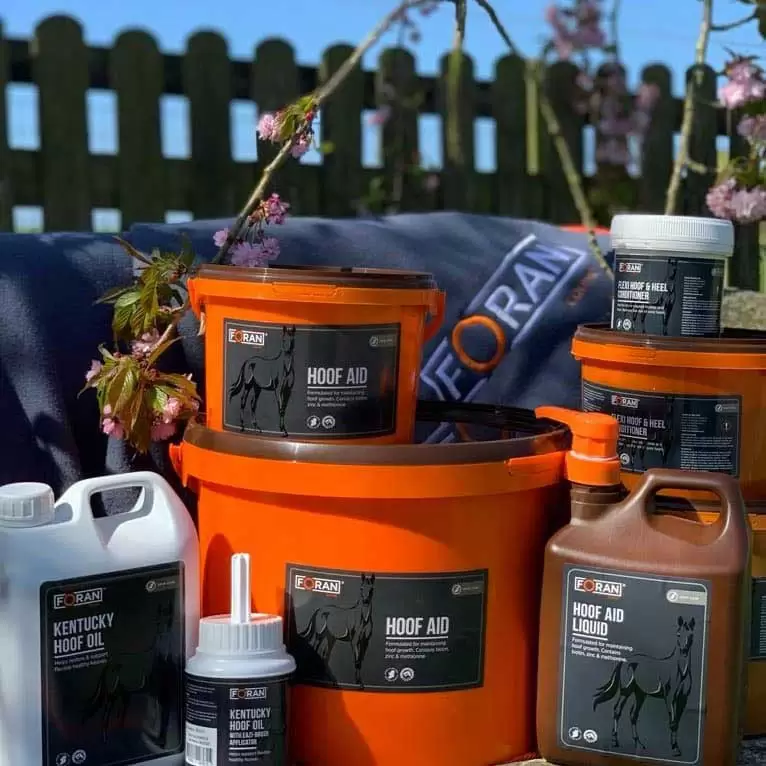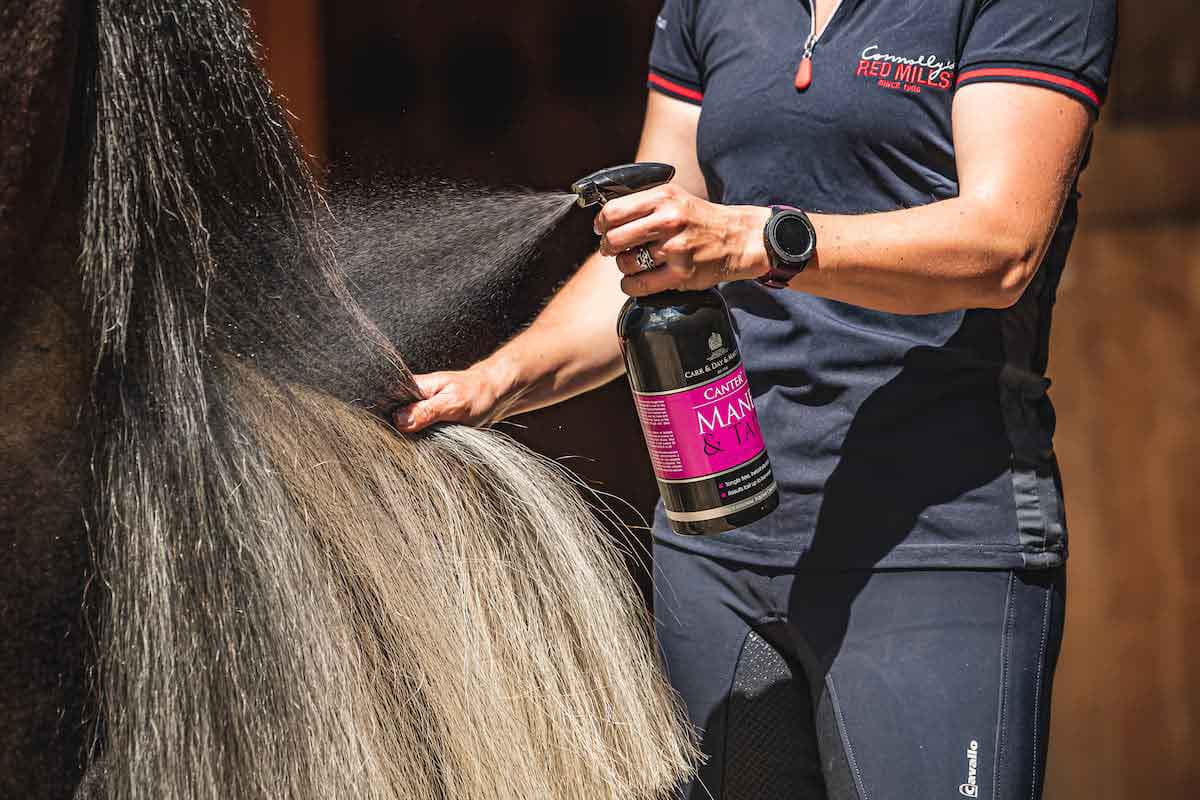A racehorse in training will be fed large quantities of high energy concentrates.
However, once their workload and energy requirements change, so will their feed requirements. An ex-racehorse coming off the track has to not only become accustomed to his new home and routine, but also to different feeding practices now that his career has changed.
It is important to feed each horse as an individual. This means looking at height, weight, life stage, metabolism, temperament, workload.
Providing an excitable or anxious horse with the energy or calories they need, without exacerbating an already overly exuberant attitude, can be challenging. However, it is possible to promote a more even temperament by keeping the starch and sugar levels low and instead providing energy (calories) from ‘slow-release’ energy sources including digestible super fibres (e.g. beet pulp and alfalfa meal) and oil.
Starch and sugars are rapidly broken down by the horse into glucose and absorbed into the bloodstream via the small intestine. They provide the horse with a rush of fuel known as ‘fast-release’ energy. This type of energy can be very useful for certain horse types such as those that tend to be very laid-back. However, for ‘fizzy’ horses or blood horses like Thoroughbreds, high intakes of ‘fast-release’ energy may result in them becoming difficult to handle.
Naturally ‘fizzy’ individuals, like ex-racers will benefit from a diet that is lower in starch and instead uses digestible fibres and oil as alternative energy sources. Fibre is a source of ‘slow-release’ energy, fermented gradually in the horse’s hindgut and so the energy is released over a long period of time.
Horse Care Ultra Cubes are cereal grain free, ultra-low in starch and contain highly digestible fibres, therefore making them an ideal feed for your racehorse in retraining who needs a non-heating feed. Horse Care Ultra Cubes also contains the added benefits of our unique RED MILLS Nutrition Care package.
Likewise, oil is an excellent source of ‘non-heating’ energy and is a particularly useful source of calories when feeding a high-spirited horse. Therefore, adding some Foran Equine Kentucky Karron Oil to the diet will be beneficial.
A calming supplement can also be enormously beneficial for many individuals. There are a high number of calmers on the market and it is important to note when making your choice that some calmers are based on one single ingredient (e.g. magnesium). Unless your horse actually has low magnesium levels these products may be of limited benefit. Therefore, we recommend using Foran Equine Nutri-Calm Syrup or Gel, which contains a combination of magnesium, B-vitamins and L Tryptophan.
Muscle and Topline
Achieving well developed topline and muscle tone takes time as your former racehorse begins its journey as a riding horse.
Exercise and nutrition work hand-in-hand to achieve a well-defined topline. Exercise will activate muscle conditioning, while a balanced diet containing high quality proteins will provide amino acid building blocks to build and repair a healthy muscular system. No two horses are the same and some require more support than others.
All our feeds contain high quality protein ingredients and amino acids to support recovery and muscle development throughout training and conditioning. Connolly’s RED MILLS Define and Shine is a low starch, high calorie pellet that aids coat shine and promotes muscle definition. It has been formulated to be fed in addition to your horses fully balanced ration – providing the diet extra calories needed for weight gain but in a smaller volume.
For weak individuals feeding a hydrolysed protein supplement such as Foran Equine Muscle Prep, which also contains added vitamin E and B-vitamins, can help to hasten muscle development.

Keeping concentrate meals small and frequent, offering plenty of clean forage, and limiting starch intake can help to reduce acid build up and support gastric health. Our Horse Care Ultra Cubes are low in starch and high in digestible oils and fibres to support gut health. The Care Package also includes a natural gastric acid buffer, prebiotics, and probiotics to support digestive function. If your horse is especially prone to digestive issues, then adding a digestive health supplement such as Foran Equine Nutri-Guard Extra to their ration can be enormously beneficial especially at time of stress or when their diet or management is changing.
Importance of Forage
Forage is the most important part of your horse’s diet, whether it is fresh (i.e. grass) or preserved (i.e. haylage or hay) it’s essential that your horse receives adequate levels in their diet. This not only provides them with an important source of nutrients, but it is also essential to keep their digestive system functioning effectively and promotes psychological well-being. Lack of forage in the diet can lead to multiple issues including gastric ulcers, colic, loose droppings and stereotypic behaviours. Understanding the nutritional value and role of forage in the horse’s diet will help you make the best choice for your horse.
- Feed each horse as an individual. Consider height, weight, life stage, metabolism, temperament and workload.
- Make all changes to the diet gradually over 7-10 days to minimise the risk of digestive disturbances.
- Provide forage ad-lib where possible.
- Assess body condition regularly, use a BCS system and take photos.
- Have your vet or dentist check your horse’s teeth and make sure you worm appropriately.
- Watch for signs of ulcers and, if found, take measures treat as recommended by your vet.
- Feed little and often, split the hard feed into 2 or 3 meals daily.
- Weigh your feed scoop! Feed by weight not volume.










